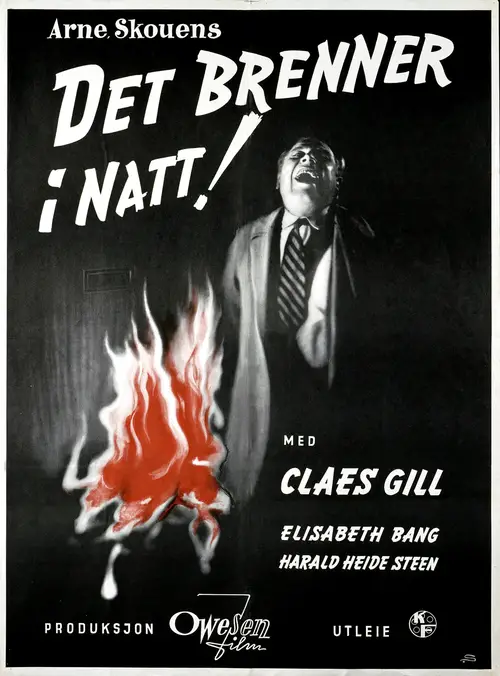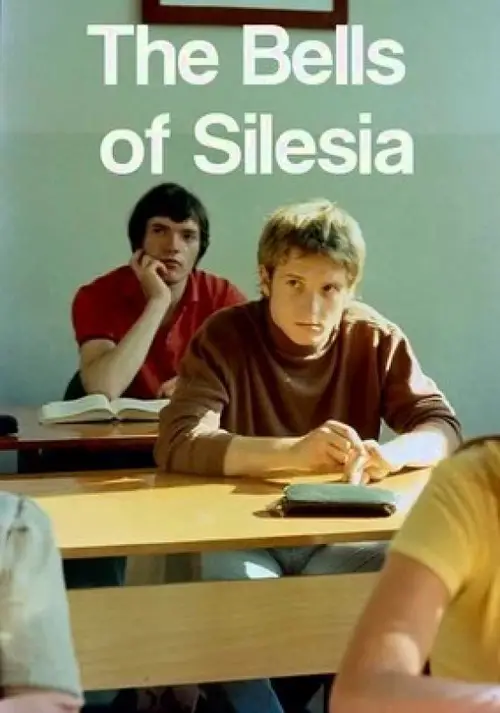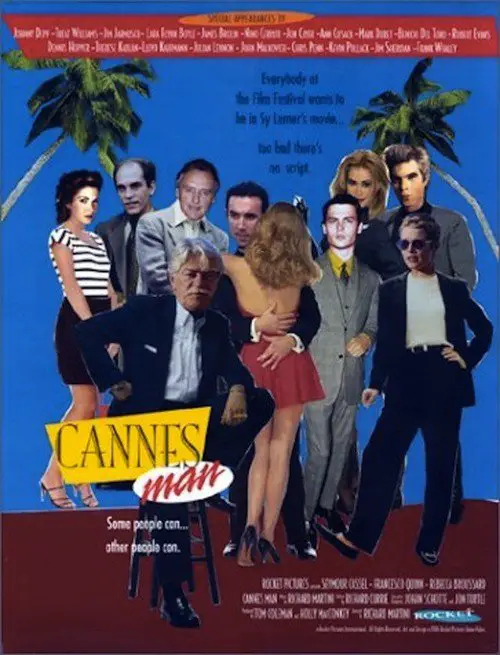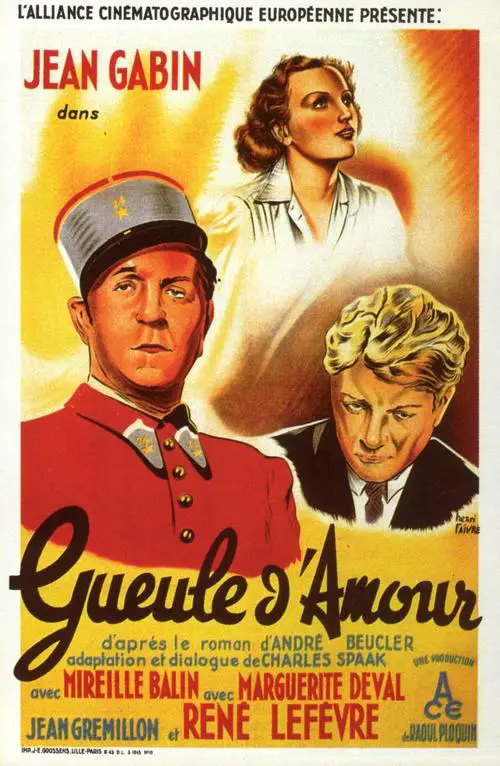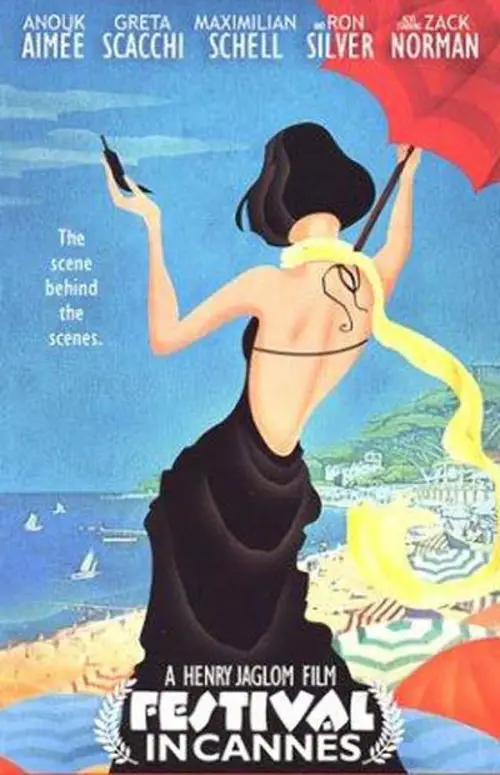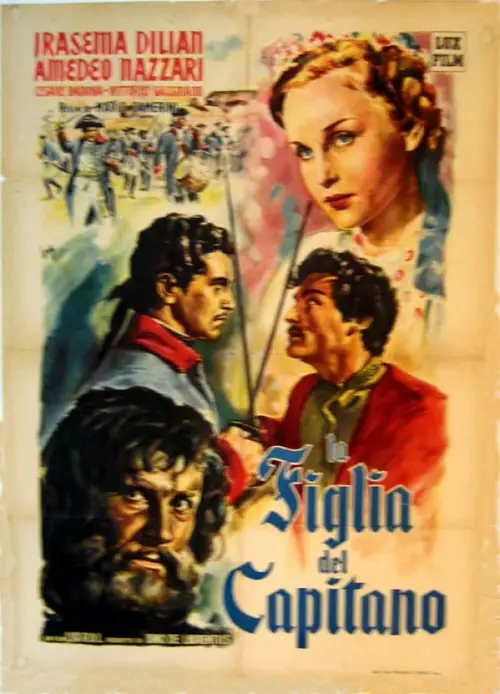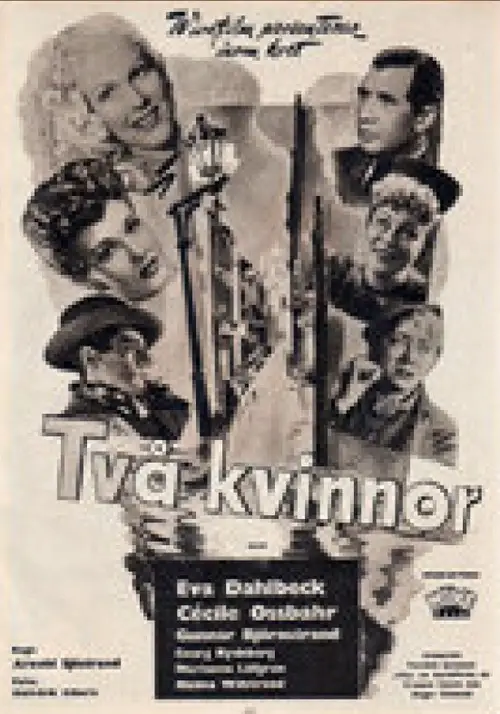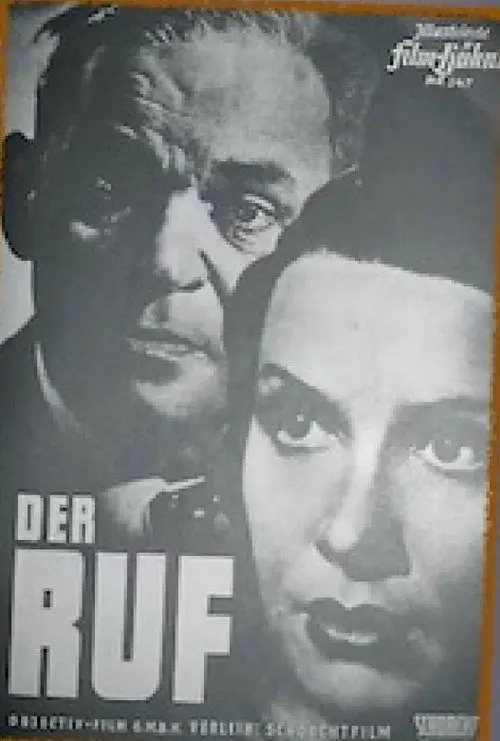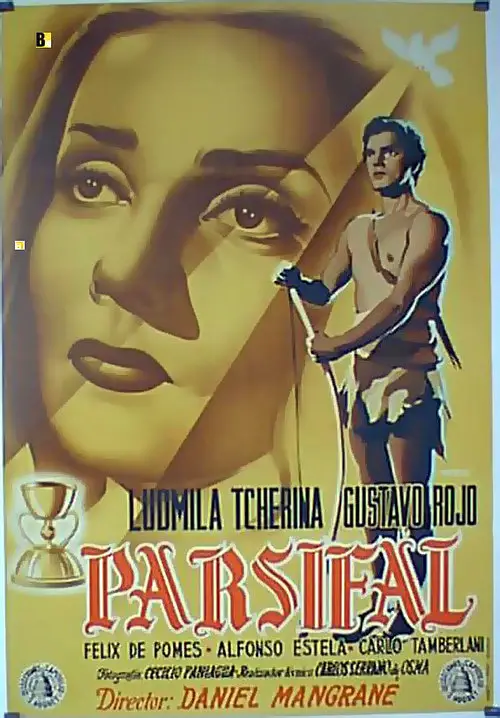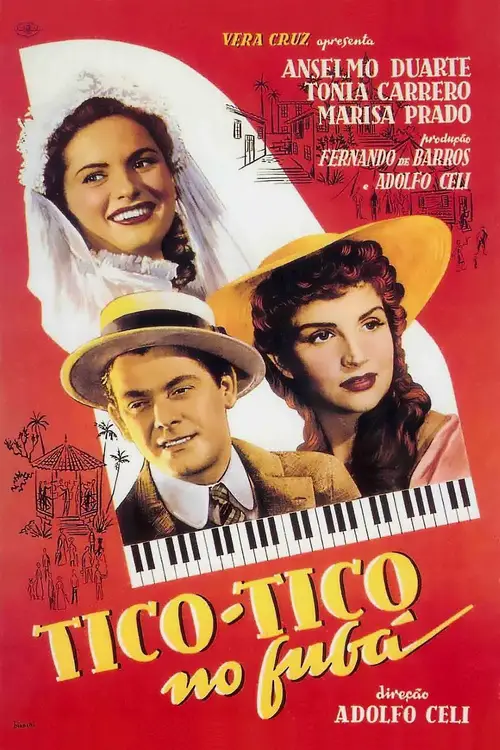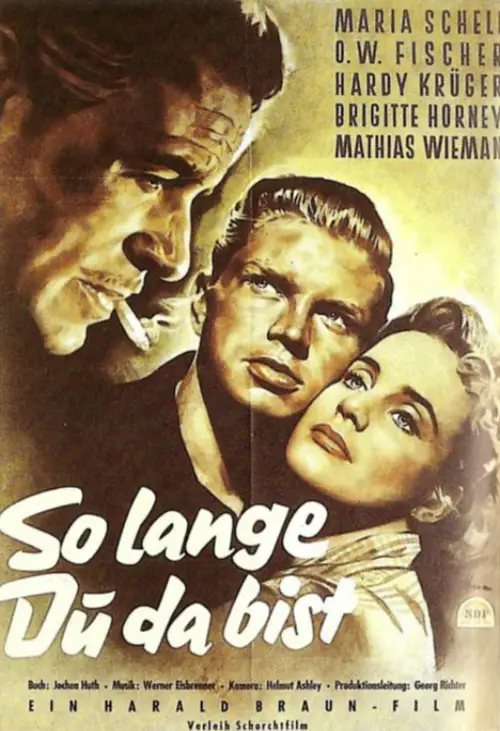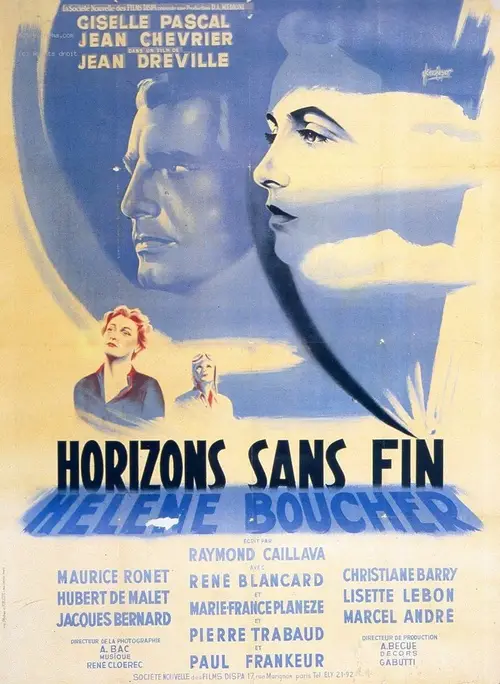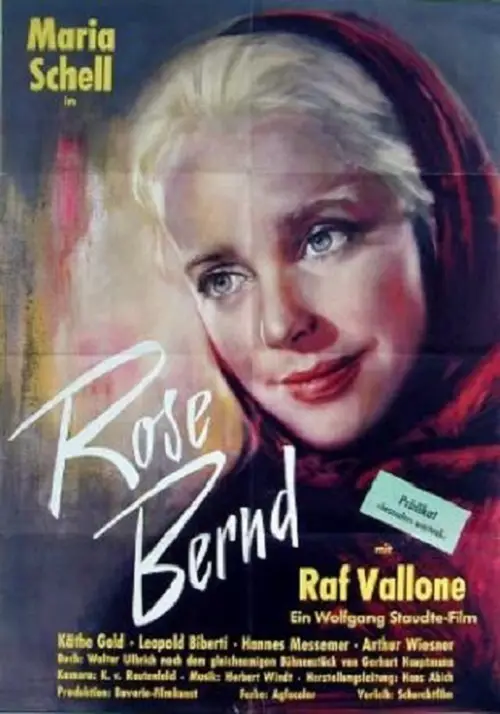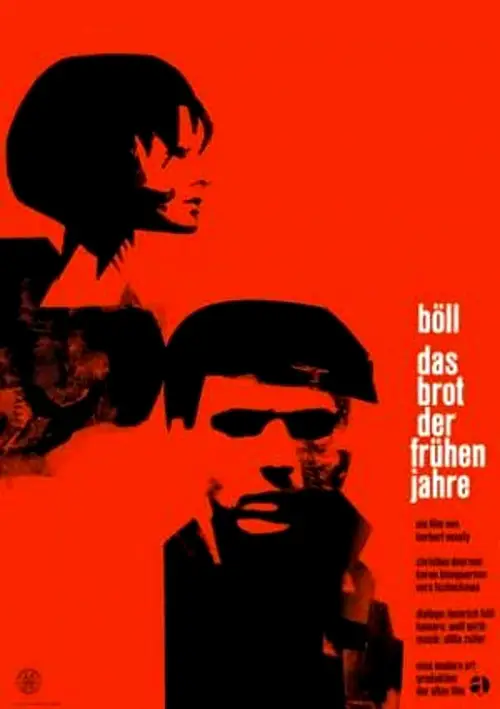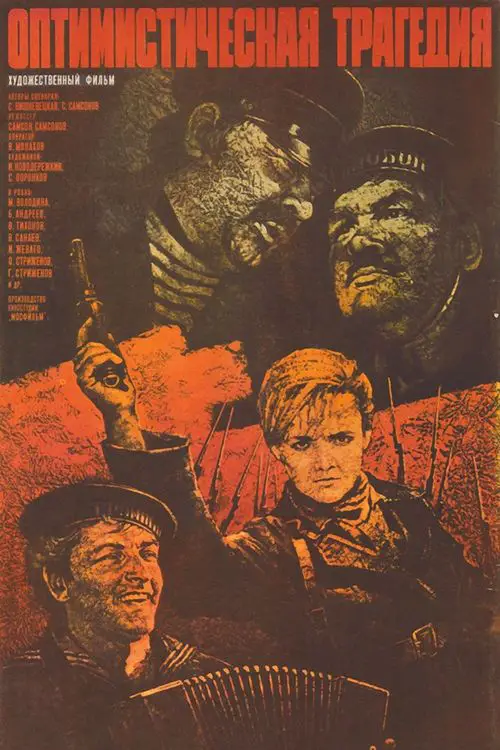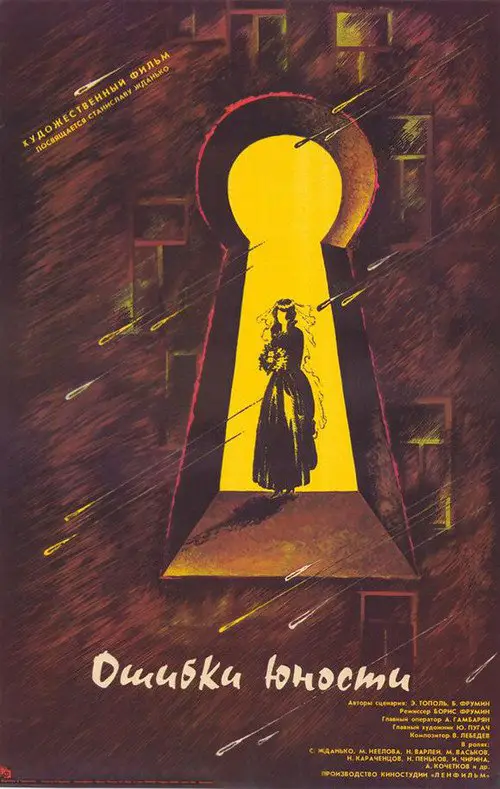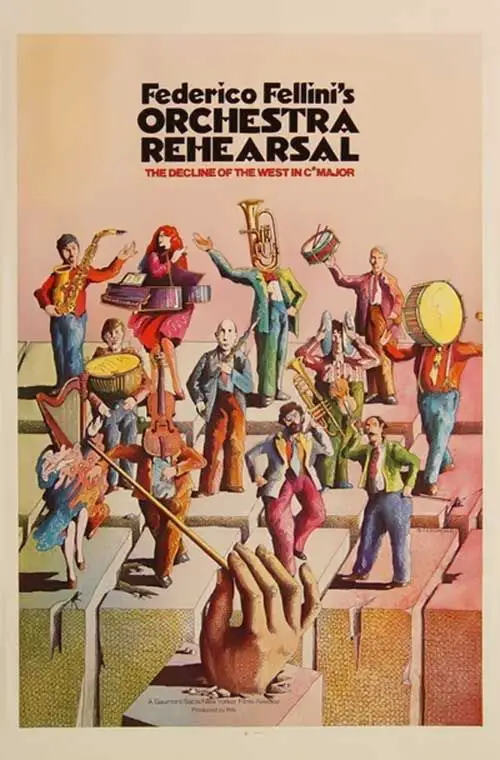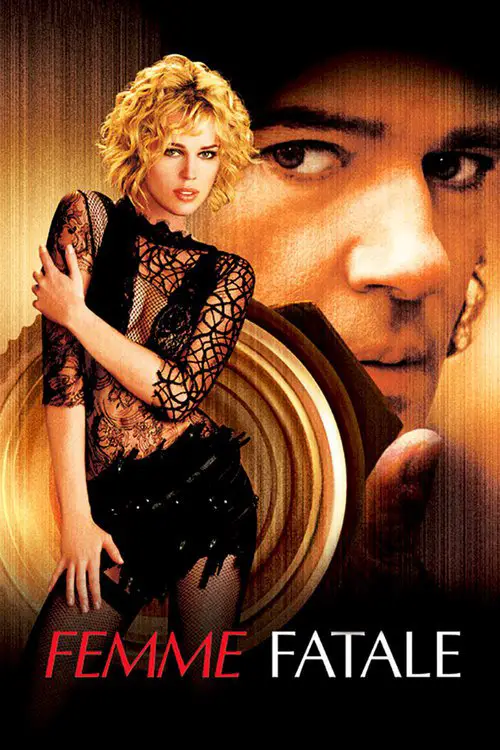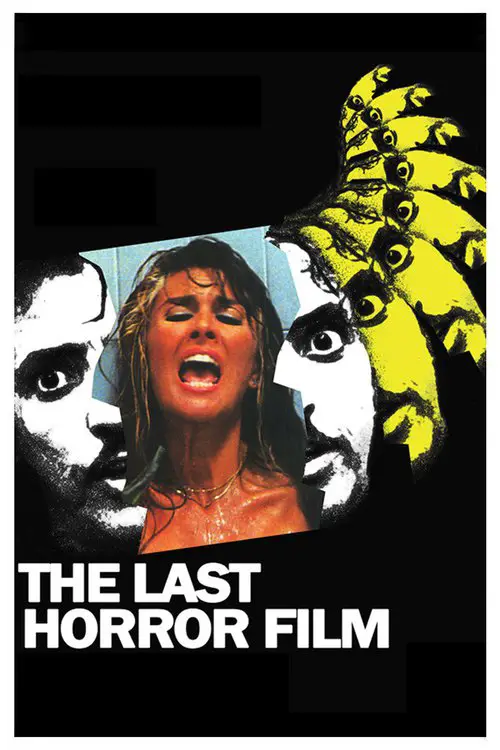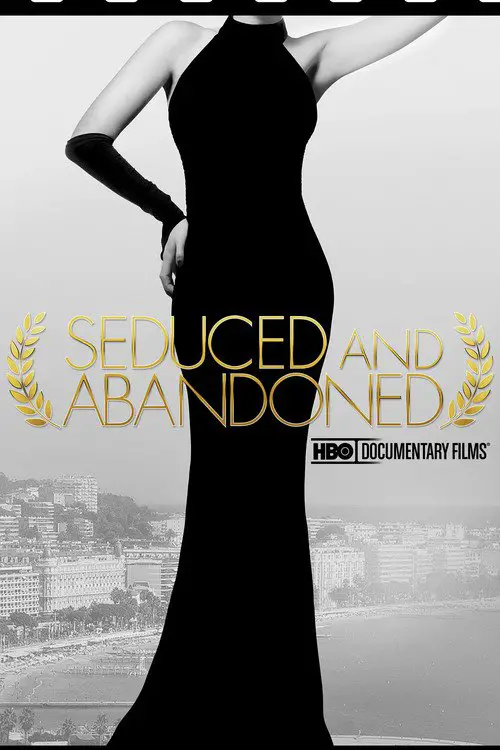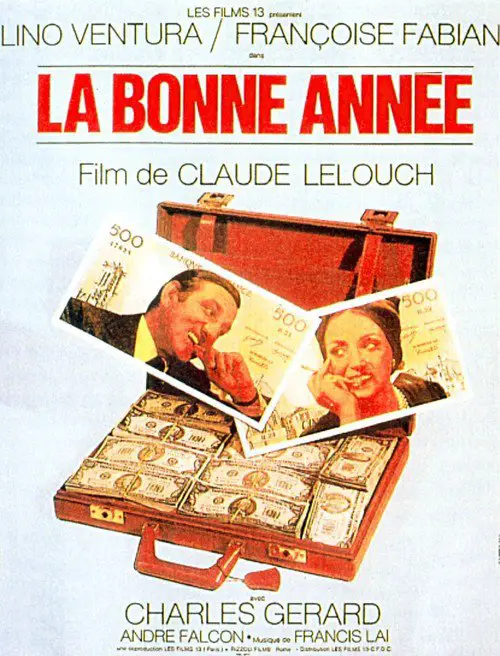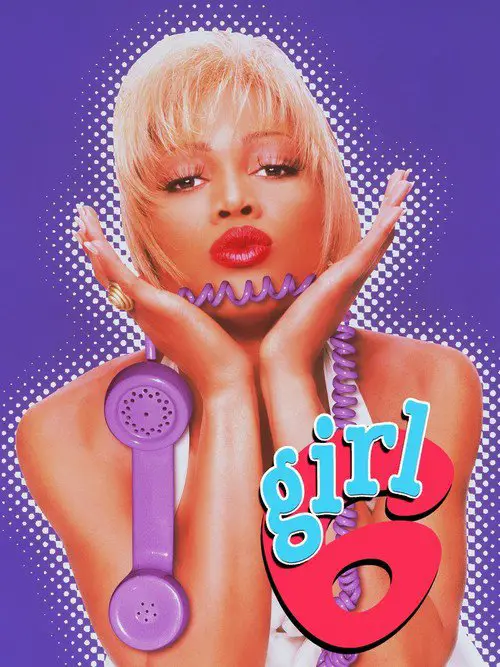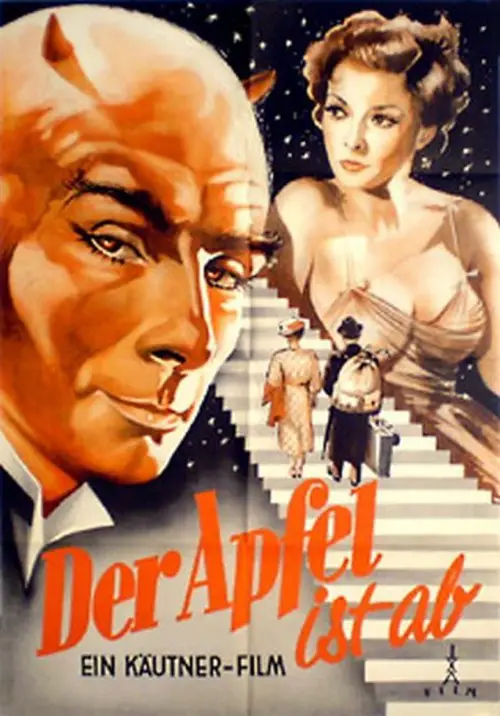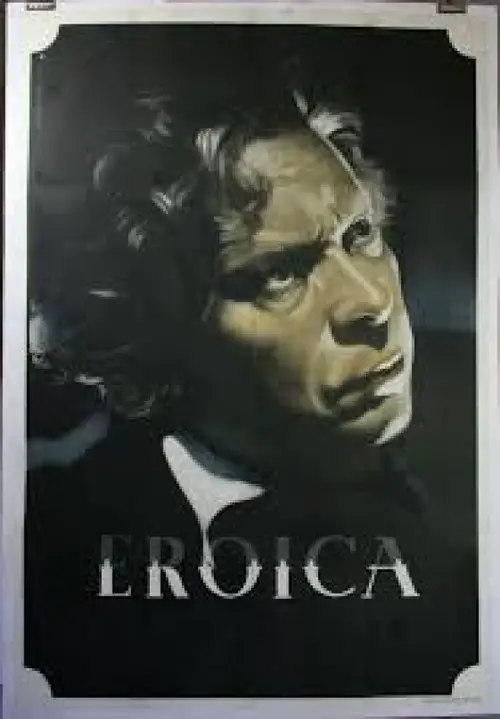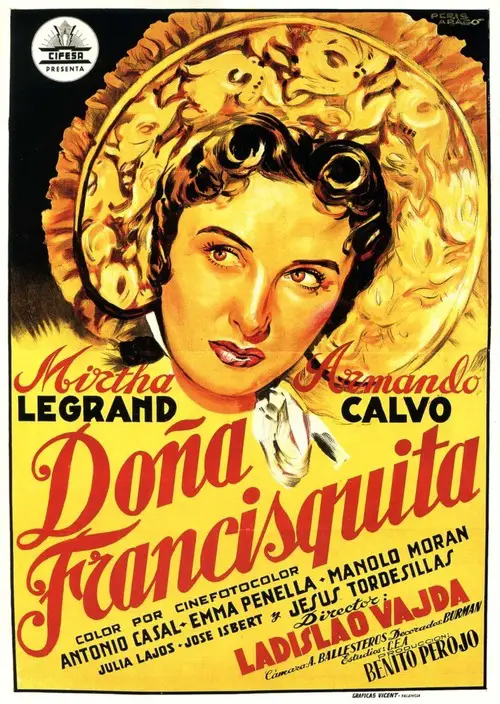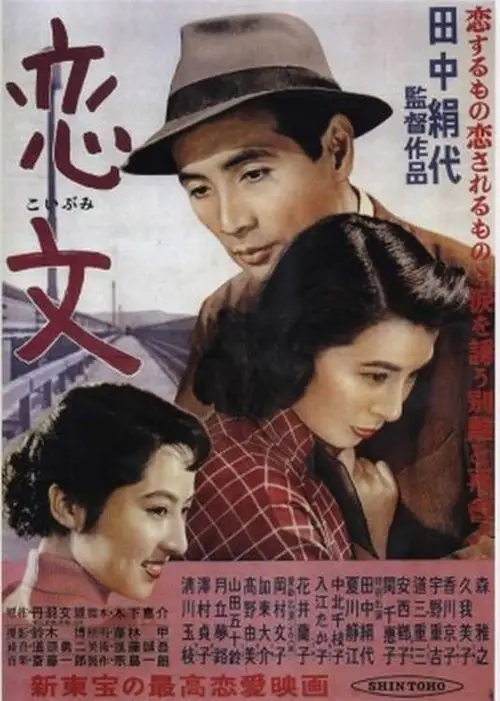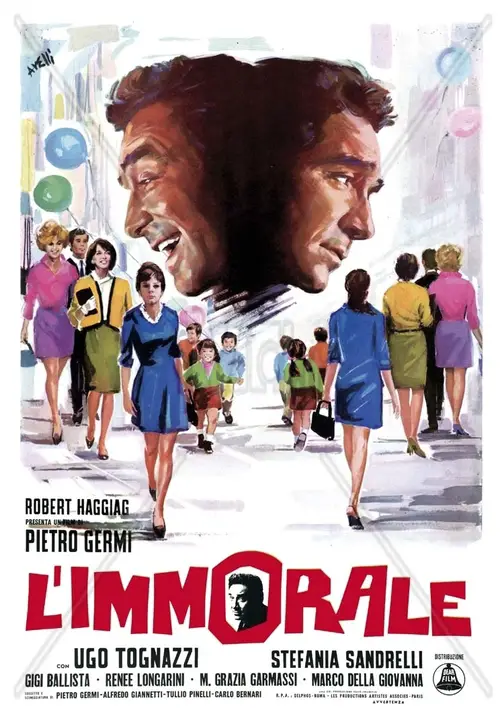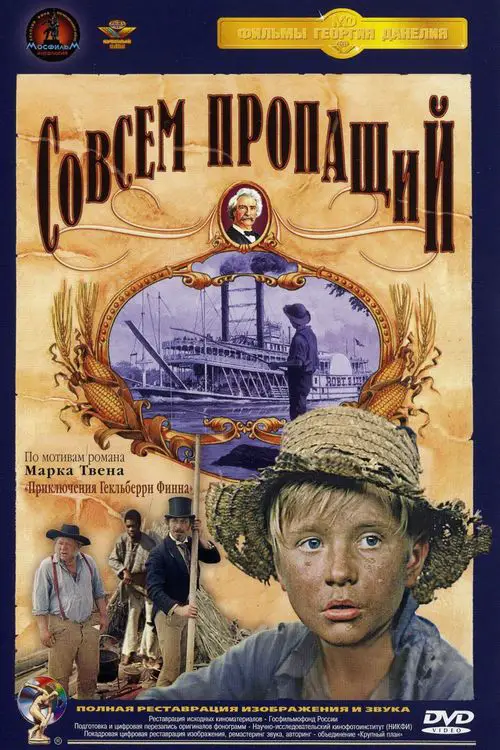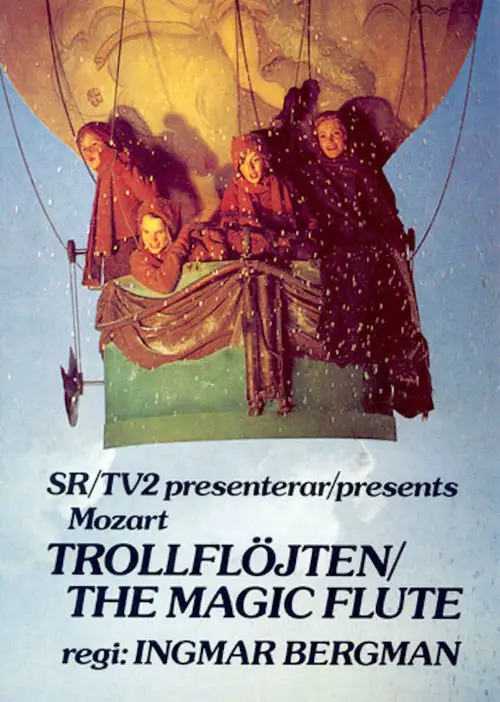Marlina the Murderer in Four Acts (2017)
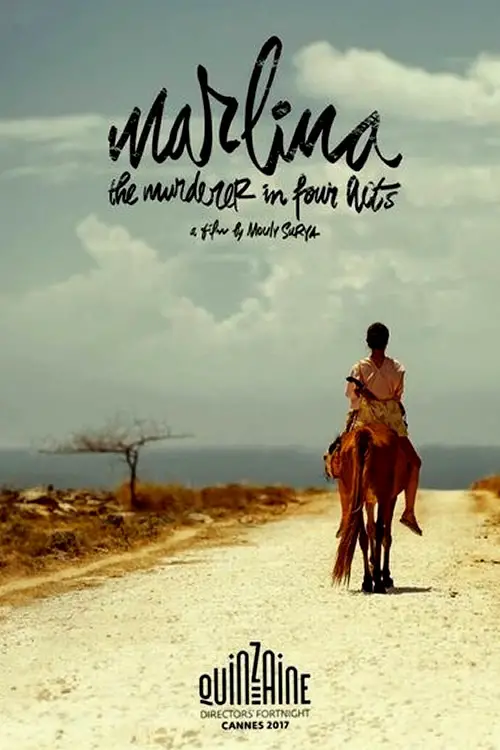
Similar movies
Havoc (German: Das Unheil) is a 1972 West German thriller film directed by Peter Fleischmann. It was entered into the 1972 Cannes Film Festival. Based on Martin Walser's compelling novel, this multilayered drama examines life in West Germany in the early 1970s, when the pressures of modern society have complicated effects on the citizens of a small town preparing for a festival.
Film producer Sy Lerner makes a bet with a fellow film executive that he can turn any nobody into a star at the Cannes Film Festival. A New York cab driver who is visiting the festival is chosen as the test subject to settle the bet and Sy uses his skills of hype and manipulation to try and turn the cab driver named Frank into the talk of the town. Many celebrities make cameos throughout the film.
Lucien Bourrache, a good looking non-commissioned officer at the Spahis, is used to charm many women. He met Madeleine Courtois at Cannes. She is beautiful and lives in luxury. He lends her a large amount of money, which she loses gambling. Then she drops him. But Lucien is now in love, and once demobilized, he goes to Paris to find her again. But he's not so sexy without his uniform, and Madeleine and him do not belong to the same milieu.
Cannes, 1999. Alice, an actress, wants to direct an indie picture. Kaz, a talkative (and maybe bogus) deal maker, promises $3 million if she'll use Millie, an aging French star. But, Rick, a big producer, needs Millie for a small part in a fall movie or he loses his star, Tom Hanks. Is Kaz for real? Can Rick sweet-talk Alice and sabotage Kaz to keep Millie from taking that deal? Millie consults with Victor, her ex, about which picture to make, Rick needs money, an ingenue named Blue is discovered, Kaz hits on Victor's new love, and Rick's factotum connects with Blue. Knives go in various backs. Wheels spin. Which deals - and pairings - will be consummated?
During the course of an ordinary week in Hollywood, movie producer Ben (Robert De Niro) must navigate his way through shark-infested waters as he struggles to complete his latest projects. A demanding studio boss (Catherine Keener) demands extensive changes to a movie starring Sean Penn, while another chief won't greenlight a project unless star Bruce Willis shaves his beard. Meanwhile, Ben tries to reconcile with his wife and maintain a relationship with his young daughter.
Tico-Tico no Fubá is a 1952 Brazilian comedy film directed by Adolfo Celi and starring Anselmo Duarte. It was entered into the 1952 Cannes Film Festival. The film is a fictionalized biography of Brazilian composer Zequinha de Abreu (1880â1935), who penned the song "Tico-Tico no Fubá" that became an international hit in the 1940s.
The life story of famed French aviatrix Helene Boucher is detailed in Horizons san Fin (Endless Horizons). Giselle Pascal stars as Boucher, who is first seen in 1930, leaving her millinery shop behind in favor of the wild blue yonder. Though the world of aviation was still essentially an all-male one (despite England's Amy Johnson and America's Amelia Earhart), Boucher perseveres, eventually breaking all existing male and female speed and height records. A bit slow on the uptake in the dramatic scenes, the film soars (no pun intended) during the aerial sequences. Horizons san Fin was the winner of the Catholic Award at the 1953 Cannes Film Festival.
West Germany's entry in the 1957 Cannes Film Festival was this cinemadaptation of the Gerhardt Hauptman play Rose Bernd. The title character, played by Maria Schell, is a servant girl on a remote farm. Sexually assaulted by both her employer and a coworker, Rose later bears a child, who die soon afterward. After nearly two hours of unrelieved misery, Rose finally finds happiness in the arms of a longtime admirer (where has he been for the past 12 reels?) Rose Bernd (aka The Sins of Rose Bernd) received a smattering of American showings thanks to the drawing power of star Maria Schell.
As the communist revolt progresses in Russia, a female commissar is dispatched to some anarchist sailors to get them on board the party bandwagon. Her arrival is met with skepticism and an attack by an aspiring rapist. She shoots the man in self defense and begins to form the sailors into a cohesive fighting unit. Joining the unit for a mission, the sailors are all murdered before they can convert to communism. The fallen angel is held up as a symbolic heroine to the people's cause in this decidedly propaganda-drenched film. The film took a specially created prize at the 1963 Cannes Film Festival, somewhat to the consternation of critics who failed to observe its merits.
From Wikipedia, the free encyclopedia.Errors of Youth (Russian: ÐÑибки ÑноÑÑи, Oshibki yunosti) is a Soviet drama film directed in 1978 by Boris Frumin. It was screened in the Un Certain Regard section at the 1989 Cannes Film Festival.Description above from the Wikipedia article Errors of Youth, licensed under CC-BY-SA, full list of contributors on Wikipedia.
Orchestra Rehearsal (Italian: Prova d'orchestra) is a 1978 Italian film directed by Federico Fellini. It follows an Italian orchestra as the members go on strike against the conductor. The film was shown out of competition at the 1979 Cannes Film Festival. Considered by some to be underrated Orchestra Rehearsal was the last collaboration between composer Nino Rota and Fellini, due to Rota's death in 1979.
SEDUCED AND ABANDONED combines acting legend Alec Baldwin with director James Toback as they lead us on a troublesome and often hilarious journey of raising financing for their next feature film. Moving from director to financier to star actor, the two players provide us with a unique look behind the curtain at the world's biggest and most glamourous film festival, shining a light on the bitter-sweet relationship filmmakers have with Cannes and the film business. Featuring insights from directors Martin Scorsese, 'Bernando Bertolucci' and Roman Polanski; actors Ryan Gosling and Jessica Chastain and a host of film distribution luminaries.
Gangster (Lino Ventura) with his accomplice (Charles Gérard), prepares to take part in the "first psychological hold-up in the history of crime". Next door to the jewellers of Van Cleef & Arpels, on the Croisette, in Cannes, the find the shop of a beautiful antiques dealer (Françoise Fabian) who befriends the group. The driver and the antiques dealer fall in love. He is friendly but unrefined, she is cultivated and independent, but discovers that talking with Simon shows up her vanity, and she desires a simple and clean love. The hold-up which had been planned for a long time by the driver is shown to be more sophisticated than his methods of seduction.
Girl 6 is a 1996 American film by director Spike Lee about a phone sex operator. Theresa Randle played the title character, and playwright Suzan-Lori Parks wrote the screenplay. The soundtrack is composed entirely of songs written by Prince. The film was screened in the Un Certain Regard section at the 1996 Cannes Film Festival. Directors Quentin Tarantino and Ron Silver make cameo appearances as film directors at a pair of interesting auditions.
L'immorale is a 1967 Italian comedy film directed by Pietro Germi. It was entered into the 1967 Cannes Film Festival. It was about a violin player that going to be father of a sixth child by his second mistress, Marisa. Quite nervous about that, he does not leave the clinic... except to drive Giulia, his legitimate wife, along with his legitimate kids to the station as they leave for a vacation at the seaside.
From Wikipedia, the free encyclopedia. Hopelessly Lost is a 1973 Soviet adventure comedy directed by Georgi Daneliya based on Mark Twain's Adventures of Huckleberry Finn. Cinematography by Vadim Yusov. It was entered into the 1974 Cannes Film Festival. Description above from the Wikipedia article Hopelessly Lost, licensed under CC-BY-SA, full list of contributors on Wikipedia.
The Magic Flute (Swedish: Trollflöjten) is Ingmar Bergman's 1975 film version of Mozart's opera Die Zauberflöte. It was intended as a television production and was first shown on Swedish television but was followed by a cinema release later that year. The film was shown at the 1975 Cannes Film Festival, but was not entered into the main competition. The film is notable as the first made-for-television film with a stereo soundtrack. However, because of its 1975 television origins, it was not made in widescreen.
© Valossa 2015–2026
| Privacy Policy
